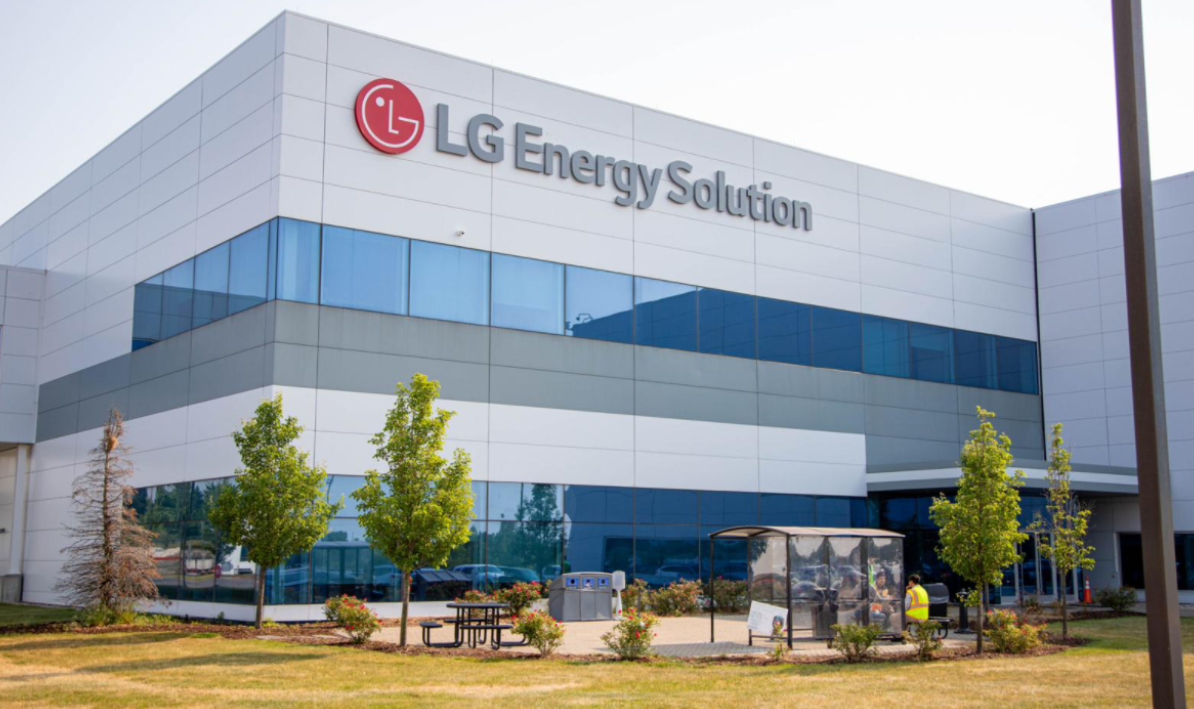On July 30, it was reported by Reuters that South Korean battery manufacturer LG Energy Solution has signed a $4.3 billion contract with Tesla to supply lithium iron phosphate batteries for the latter's energy storage systems. Sources indicate that LG Energy Solution will supply these batteries from its U.S. plant. The company’s clients include Tesla and General Motors. It's noteworthy that LG Energy Solution announced earlier on Wednesday that it had signed a three-year global supply contract for lithium iron phosphate batteries worth $4.3 billion but did not disclose the identity of the client. The company also did not specify whether these batteries would be used for vehicles or energy storage systems. In response to Reuters, LG Energy Solution stated, "We are bound by confidentiality obligations under the agreement and cannot disclose the identity of the client." On the same day, CATL experienced a stock price fluctuation, initially rising over 1% to HKD 468, setting a new high since its IPO, before dropping more than 6% to HKD 431.6 by 11 a.m. Analysts suggested that CATL's stock price volatility may be related to the announcement of the $4.3 billion battery supply agreement between LG Energy Solution and Tesla. As for the validity of the news, neither LG Energy Solution nor Tesla has responded to requests for comment yet. The supply contract for lithium iron phosphate batteries is valid from August 2027 to July 2030, with an option to extend the agreement by up to seven years and increase supply based on negotiations with the client. Tesla's choice of LG Energy Solution is not surprising, as the company has been a significant client for a long time. According to a report by the Korean Economic News on June 14, LG Energy Solution plans to invest KRW 580 billion to establish a production line for "4680 cylindrical batteries" at its second factory in North Chungcheong Province, South Korea, to supply Tesla. The company aims to begin mass production in the second half of next year, achieving the fastest global mass production of the 4680 cylindrical products, which are seen as game-changers in the battery industry. Analysts believe that through this investment, LG Energy Solution consolidates its partnership with Tesla and seizes winning opportunities in the global battery competition. Recently, LG Energy Solution released its Q2 2025 financial report, showing a consolidated revenue of KRW 5.6 trillion, a quarter-on-quarter decline of 11.2%. However, operating profit surged by 152.4% year-on-year and increased by 31.4% quarter-on-quarter to KRW 492.2 billion (approximately USD 360 million), far exceeding last year's figure of KRW 195 billion, with an operating profit margin of 8.8%. This performance surpassed market expectations. However, it is noteworthy that excluding tax credits obtained under the U.S. Inflation Reduction Act (approximately KRW 490.8 billion), LG Energy's operating profit would be KRW 1.4 billion; consolidated revenue would be KRW 5.565 trillion, a year-on-year decrease of 9.7% and a quarter-on-quarter decline of 11.2%; net profit reached KRW 91 billion, compared to a net loss of KRW 24 billion in the same period last year. In stark contrast to this impressive financial report, LG Energy's stock price fell by 2.3% on the day of the announcement, raising concerns in the capital market about the sustainability of its performance. Market concerns stem from the fact that LG Energy's significant profit growth is largely dependent on the "buying spree" triggered by expectations of U.S. tariffs, as well as the high concentration of its customer base, primarily from European and American automakers like Tesla. If the news is true, it indicates that LG Energy Solution has once again deeply bound itself to the "money tree" Tesla. In a certain sense, for suppliers, deeply binding to established clients is a good thing, especially as Tesla seems to favor Korean suppliers recently. On July 28, Samsung Electronics announced it had reached a KRW 22.8 trillion chip production agreement with a client, which was personally confirmed by Musk to be Tesla. With Korean suppliers continuously securing major client orders from Tesla, they are undoubtedly pleased. However, this may not bode well for Chinese suppliers. Reuters reported that LG Energy Solution is one of the few lithium iron phosphate battery manufacturers in the U.S., having started production of these batteries at its Michigan facility in May. If Tesla indeed forms a deep partnership with LG Energy Solution, it is possible that Tesla is attracted to LG’s ability to avoid tariffs due to local production in North America. According to the U.S. Inflation Reduction Act, batteries produced domestically in North America can receive tax credits. However, lithium iron phosphate battery technology has long been dominated by Chinese battery companies, which have limited operations in the U.S. This means that the lithium iron phosphate landscape, led by Chinese companies for a decade, may face challenges in the North American market. LG Energy Solution has been striving to eliminate tariff-related issues from its financial reports while actively expanding its customer base. On June 16, it was reported by the Korea Herald that LG Energy Solution announced it had signed a six-year supply agreement for 46-series large cylindrical batteries with Chinese automaker Chery. According to the agreement, LG Energy will supply 46-series large cylindrical batteries to Chery, with an order size reaching 8 GWh, sufficient to meet the production needs of about 120,000 electric vehicles, based on the industry average of approximately 65-70 kWh per electric vehicle. Although the specific value of the contract has not yet been determined, considering the current price trends in the battery market and the development of cylindrical battery technology, the order amount will undoubtedly be significant. Industry experts speculate that the contract value may exceed KRW 1 trillion.
LG Energy Solution Signs $4.3 Billion Battery Supply Contract with Tesla

Share this post on: